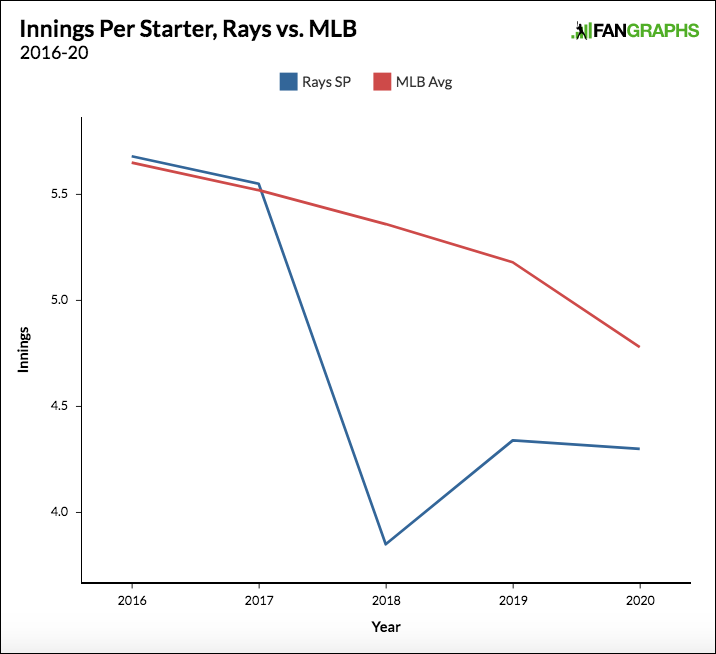The Remaining Market for Jake Odorizzi
As the calendar flips to March, exhibition season has begun (!) in both Arizona and Florida, and yet a few top free agents remain unsigned. Atop the list in terms of projected impact is Jake Odorizzi, who’s had the misfortune of mistiming the market, in part due to an injury-wracked 2020 season. Still, there’s no shortage of teams that the veteran righty, who placed 24th on our Top 50 Free Agents list, could help.
Odorizzi, who turns 31 on March 27, spent the past three seasons with the Twins, putting together a solid campaign in 2018 (4.49 ERA,4.20 FIP, and 2.5 WAR in 164.1 innings), and an All-Star one in ’19 (3.51 ERA, 3.36 FIP, and 4.3 WAR in 159 innings). Last year was a near-total loss, though, as he was limited to 13.2 innings by an intercostal strain and a blister. Prior to that, Odorizzi pitched four years and change with the Rays, that after being traded in blockbusters involving Zack Greinke and Lorenzo Cain (2010) — he was originally a supplemental first-round pick by the Brewers in ’08 — and then James Shields and Wil Myers (2012). In Tampa Bay, he totaled 6.5 WAR from 2014 to ’16 before a bout of gopher trouble (1.88 homers per nine) led to a replacement level season in ’17. That hiccup aside, he’s been very solid and (prior to 2020) rather durable, averaging 30.3 starts per year from 2013 to ’19; an oblique strain in ’15 and hamstring and back woes in ’17 kept him to 27 starts in those seasons. As best I can tell, he’s never missed significant time due to an arm injury.
Odorizzi has gone his entire career without signing a multiyear deal. He won back-to-back arbitration cases against the Rays in 2017 ($4.1 million) and ’18 ($6.3 million), the reward for which was being traded to the Twins just two days after the latter decision was announced. After making $9.3 million in 2019, his best season, he received a $17.8 million qualifying offer from the Twins, which apparently put a drag on his market before he could fully test the waters. Via MLB.com’s Do-Hyoung Park, Odorizzi received “a lot of interest” from other teams at the time, to the point of exchanging dollar figures, “but the uncertainty generated by the timeframe and the draft considerations ultimately led to his return to Minnesota.” The fact that Odorizzi wouldn’t be be subjected to another qualifying offer the next time he reached free agency, and thus wouldn’t have the millstone of draft compensation attached to his signing, was a factor in his decision.
Alas, his 2020 season didn’t pan out as planned. The intercostal strain landed him on the injured list to start the season, and so he didn’t make his season debut until August 8. In his third outing, on August 21, he was hit in the chest by a batted ball, suffering a contusion and landing on the IL again. Upon returning, a blister problem led to another early hook. Though he was on the roster for the AL Wild Card series against the Astros, he did not pitch.


